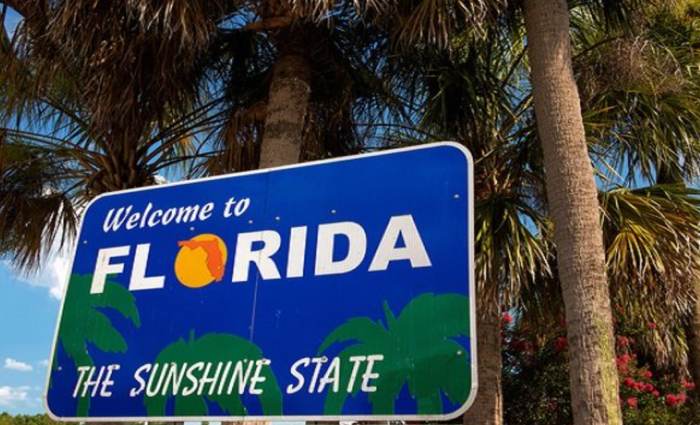Florida: Won’t anyone think about the reinsurance (brokers)

With Florida’s property insurance market seemingly entering a new level of crisis, on the news that Demotech may downgrade a slew of carriers which caused a significant backlash from state officials, it’s remiss not to consider the impact on the reinsurance market, how that may further pressure those carriers and also the challenges this all poses for reinsurance brokers as well.
With the Florida reinsurance renewals only just completed, having taken longer and been even more challenging than expected, the reinsurance industry, including insurance-linked securities (ILS) funds, have underwritten their portfolios and factored in earning a certain amount of premiums over the coming year from Florida writers.
Then along comes a bombshell about up to 17 property insurers in Florida facing downgrades by Demotech, which could make their businesses less tenable, while another 27 are under special oversight from the regulator at this time.
Raising the prospects of a slew of Florida carriers going south over the coming weeks or months, potentially, which has ramifications for the reinsurance already renewed and in-place, as well as those providing it and those undertaking negotiations.
What matters here is premium flow, either over the course of a reinsurance arrangement, or sometimes and more frequently upfront.
Deposit premiums are typically paid upfront for excess of loss reinsurance arrangements, while under the terms of a contract, no matter its length, there is normally also a defined minimum premium to be paid, which depending on terms can come due should a reinsurance agreement be ended early.
As we’re just weeks into a new renewal year, in reinsurance terms for Florida’s property insurers, any failures could raise the prospects of a stricken carrier finding it owes its reinsurance panel the minimum premium amount.
For any thinly capitalised carrier that has just been downgraded and lost its ability to write business, plus maybe losing policies that it now has to relinquish, this additional financial burden could be a nail in the coffin, so to speak.
Minimum premium amounts can differ for numerous reasons, including how well-established a carrier is, as well as how hard, or soft, the reinsurance market cycle is.
Given the state of the Florida property insurance market and the hardening of reinsurance rates, it feels likely the minimums will be at relatively high percentages, compared to history, while they are likely to be more enforced in a challenged market than a more stable one.
Whether minimums ever get paid, should an insurer fail, is difficult to say.
It depends on insurer capital structure to a degree, as in the priority a reinsurer would have to recoup these minimum premium payments in the event of a bankruptcy.
There can even be cases where minimum payments can be made void, in a time of failure and this has apparently been seen before.
However, given how Florida’s renewals went, it seems unlikely any reinsurance firm or ILS fund would have agreed to what are seen as soft market terms, such as anything that would let a carrier off the hook easily should it struggle or fail.
Now, at the recent renewals there have been many instances of premiums being paid upfront, a definite hard market term that has emerged.
But, we’re told it’s likely only the very strongest balance-sheets in Florida would have been able to pay all their reinsurance premiums upfront, so this may actually be a more sporadic term, on specific layers and for specific counterparties, especially prevalent in the most distressed parts of the market where carriers really (really) needed that reinsurance agreement in place.
So reinsurers are facing a certain level of risk now, with these 17 or so insurers that could be at-risk of downgrades, as their reinsurance premiums they have budgeted to receive over the year, may not now manifest, if it comes down to minimums, or even worse bankruptcies where they may not receive even the minimum amounts.
But, what of the brokers.
Right now, in light of Demotech’s warning of the state of Florida’s base of insurers, it’s almost certain that reinsurance brokers will be out trying to negotiate back down any minimum premium terms, on behalf of the clients.
In essence, we’re told reinsurance brokers, as advocates for their clients, will likely seek to reduce the minimum terms with reinsurers and ILS funds where they can, to make it less of a concern for the carriers themselves.
Just when the reinsurance brokers might have thought their job on Florida renewals was as good as over for this year, this eventuality and the threat of a glut of carriers falling into crisis will ensure they’re busier than they envisaged, or wanted to be, through the coming weeks.
So, we must not forget that carrier failures (or just severe financial stresses) can have ramifications for reinsurers, ILS funds and brokers too.
It’s not just rating agencies and insurers that are in the firing line, as this latest drama in Florida unfolds.
Also read: Demotech warns 17 Florida carriers of downgrades, state leadership responds.
Read all of our news and analysis on the Florida insurance and reinsurance market.






